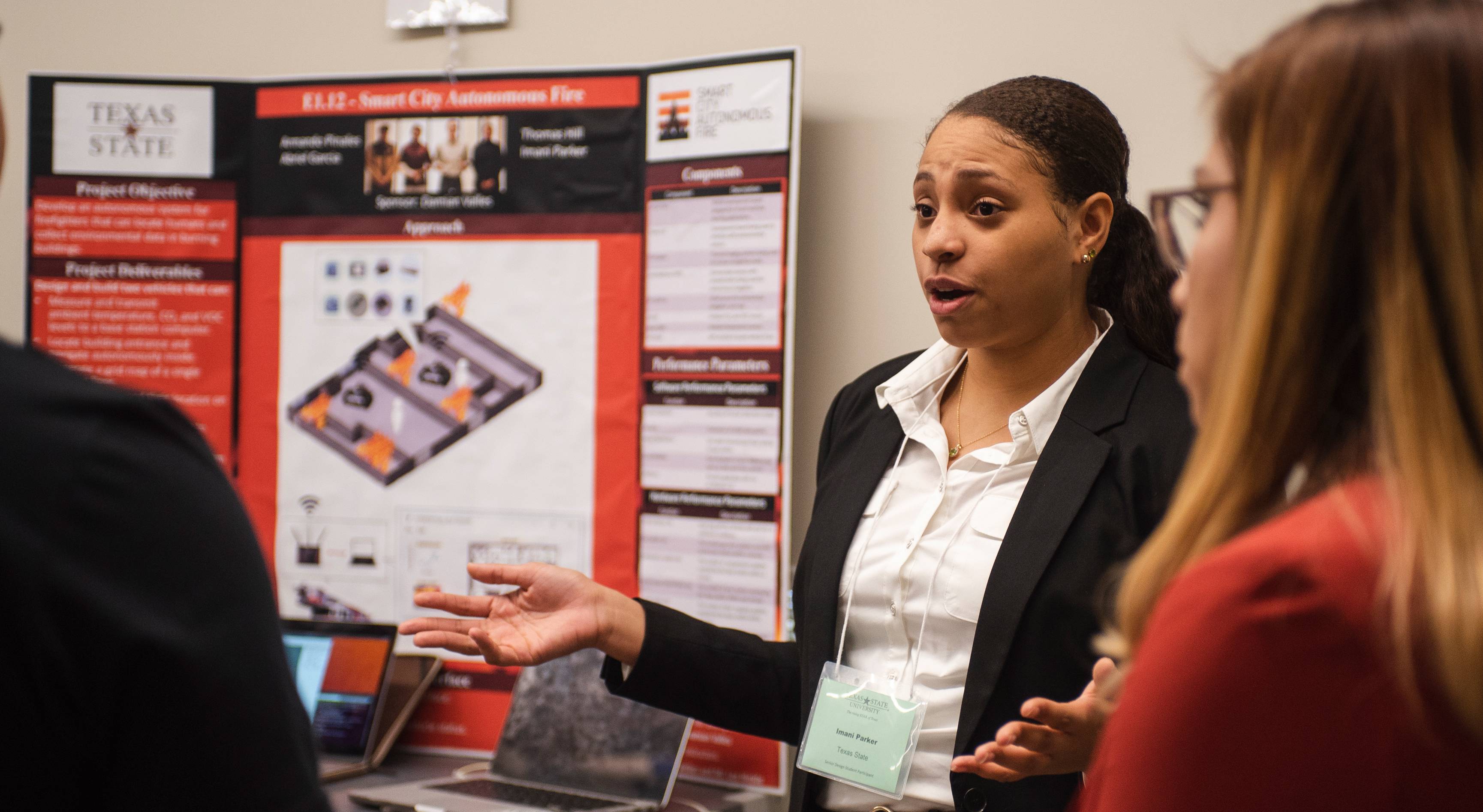Texas State's new IDEA Center will create pathways to research for undergraduate students
By Peter Golato and M. Alejandra Sorto
What happens when a university sets its collective mind to creating an innovative program designed to help its students become creators of new knowledge in their fields, while also giving them valuable skills and experience which will serve them long after they have graduated?
At Texas State University the answer is the Quality Enhancement Plan (QEP). The theme of the QEP is Innovation, Discovery, Exploration, and Analysis (IDEA). The IDEA Center includes three interrelated goals: to assist undergraduates in gaining awareness of research and ethical research practices, to help students to synthesize research, and to enable students to produce a research or creative project.
One part of Texas State’s reaffirmation with the Southern Association of Colleges and Schools Commission on Colleges is its QEP, which is a project developed by the university and designed to enhance the quality of student learning and success.

Designed for undergraduates in any major, the IDEA Center assumes no prior knowledge of how research or creative expression is done in any academic discipline. Instead, it uses a carefully planned series of informational forums, tutorials, workshops, and coursework to introduce students to the concept of research, its utility to society, its associated ethics, and general ways in which research can be conducted. Once these areas have been covered, students are paired with research-active faculty mentors in their majors who have extensive experience working one-on-one with undergraduates, and who serve as guides as the students complete a research or creative expression project appropriate for whatever their academic discipline might be. The capstone of the experience is a public presentation by the student on their completed project.
The university community has been eagerly anticipating the QEP. Prior to its planning, results from focus groups, national surveys, and surveys conducted with Texas State students had suggested that a center where students interested in research could be educated in the fundamentals of research, and paired with faculty in their fields looking to mentor them, would be of great interest. Many of the faculty themselves know of the research-based recommendations for best practices that show that engaging undergraduates in research benefits students and their potential future employers alike.
Critical thinking skills in particular have been identified as important by employers who have attended Texas State’s career fairs and by national organizations such as the Council on Undergraduate Research. Taken together, this means that Texas State undergraduates who gain experience doing research will be better prepared and more sought after on the job market, no matter where their post-graduate careers might take them.
In keeping with its slogan, “Research for Everyone,” the IDEA Center is broadly inclusive in that students from any academic discipline are welcome to participate. However, the QEP is especially intended for students in academic departments in which there are relatively few opportunities for undergraduates to have direct experience with research and creative expression and to thus develop desirable job market-related skills and expertise. Overall the focus is on broad inclusivity and on students in departments where few research opportunities exist serves to underscore Texas State’s strong commitment to undergraduates in all of its departments and colleges.